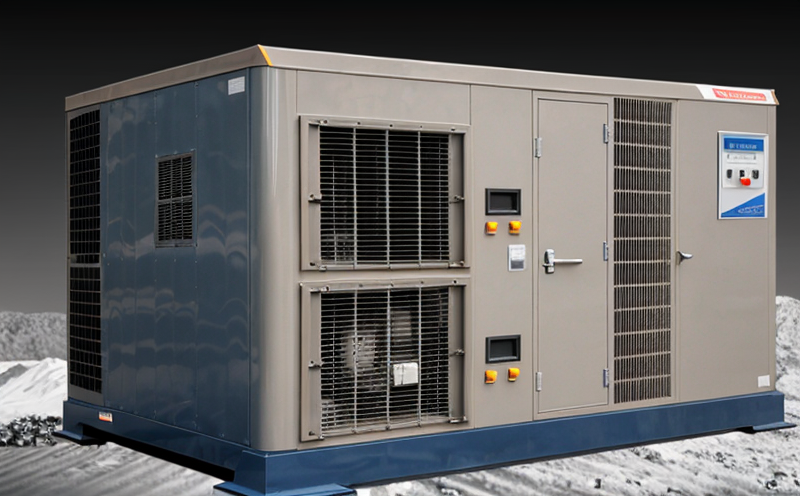JEDEC JESD22-A113 Preconditioning Thermal Stress Testing
The JEDEC JESD22-A113 preconditioning thermal stress test is a critical process in the semiconductor industry aimed at ensuring that microchips and other electronic components are capable of withstanding extreme environmental conditions. This test helps manufacturers identify weaknesses early in the production cycle, thereby improving product reliability and durability.
The JESD22-A113 standard specifies the procedure for performing a thermal stress test on integrated circuits (ICs) to determine their resistance to soldering processes under conditions that simulate real-world use. This testing is essential because it helps ensure that components can handle high temperatures without failing, which is critical for their long-term performance and reliability.
The primary goal of this test is to precondition the device by subjecting it to controlled thermal cycling within specified temperature ranges. The purpose is to expose potential weaknesses in the solder joints, encapsulation materials, and overall construction before final assembly. By identifying these issues early, manufacturers can implement necessary changes to improve product quality.
The testing process involves placing the ICs into a specialized oven or environmental chamber where they are subjected to rapid temperature cycling between two predetermined levels. Typically, this range is set at -55°C and +125°C, which simulates the extreme temperatures encountered during soldering processes like reflow or wave soldering.
During this cycle, the devices are exposed to repeated heating and cooling cycles over a specified period, usually 30 minutes per cycle. This duration allows for sufficient time for heat transfer throughout the component without causing damage due to excessive thermal shock.
The JESD22-A113 standard also includes specific criteria for determining whether a device has passed or failed the test. These include visual inspections of the package, electrical resistance measurements, and mechanical strength assessments after exposure to the specified temperature extremes.
One key aspect of this testing procedure is its role in preparing components for subsequent reliability tests. By preconditioning the devices through thermal stress testing, manufacturers can more accurately assess the overall performance characteristics of their products under realistic conditions.
The importance of proper preparation cannot be overstated; improper handling during soldering processes can lead to premature failure or reduced lifespan of electronic components. Through rigorous preconditioning and subsequent reliability testing, companies ensure that only high-quality products reach market, ultimately enhancing customer satisfaction and trust in the brand.
Understanding the nuances of JESD22-A113 is crucial for any organization involved in semiconductor manufacturing or quality assurance. Proper implementation ensures compliance with industry standards while simultaneously improving product performance and durability.
Applied Standards
| Standard Number | Description |
|---|---|
| JESD22-A113 | JEDEC standard for preconditioning thermal stress testing of integrated circuits. |
Scope and Methodology
The scope of the JEDEC JESD22-A113 test encompasses both the preparation phase (preconditioning) and the actual thermal stress testing. During the preparation stage, devices are placed in an oven or environmental chamber where they undergo a series of temperature cycles designed to mimic the conditions experienced during soldering processes.
The methodology for performing this test involves precise control over temperature ranges and durations. Typically, the temperature is cycled between -55°C and +125°C at intervals of 30 minutes per cycle. This process continues until all units have been subjected to a total of 60 cycles or the prescribed duration.
After completing this initial phase, individual devices are inspected visually for any signs of damage or failure. If no issues are found during this inspection, further testing may be conducted using more stringent criteria such as electrical resistance measurements and mechanical strength assessments.
The results from these tests provide valuable insights into the reliability and durability of the components being tested. These findings can then inform improvements in design, manufacturing processes, or quality control measures aimed at enhancing overall product performance.
Customer Impact and Satisfaction
- Enhanced Product Quality - Ensures that only high-quality components reach the market by identifying and rectifying issues early in the production cycle.
- Increased Customer Trust - By delivering reliable and durable products, companies build stronger relationships with their customers.
- Improved Market Reputation - Compliance with industry standards like JESD22-A113 enhances a company's reputation within the semiconductor sector.
- Cost Savings - Early identification of potential problems through thorough testing reduces costs associated with rework or product recalls later in the lifecycle.





